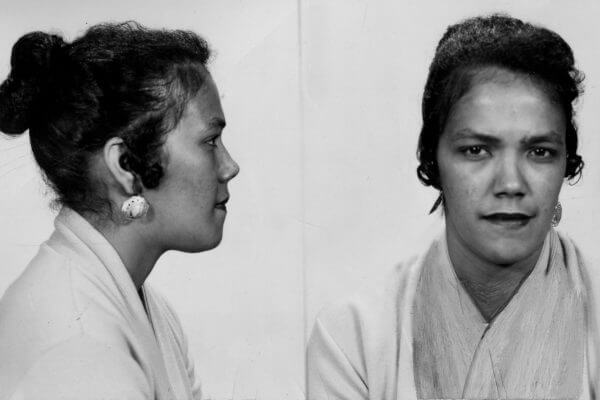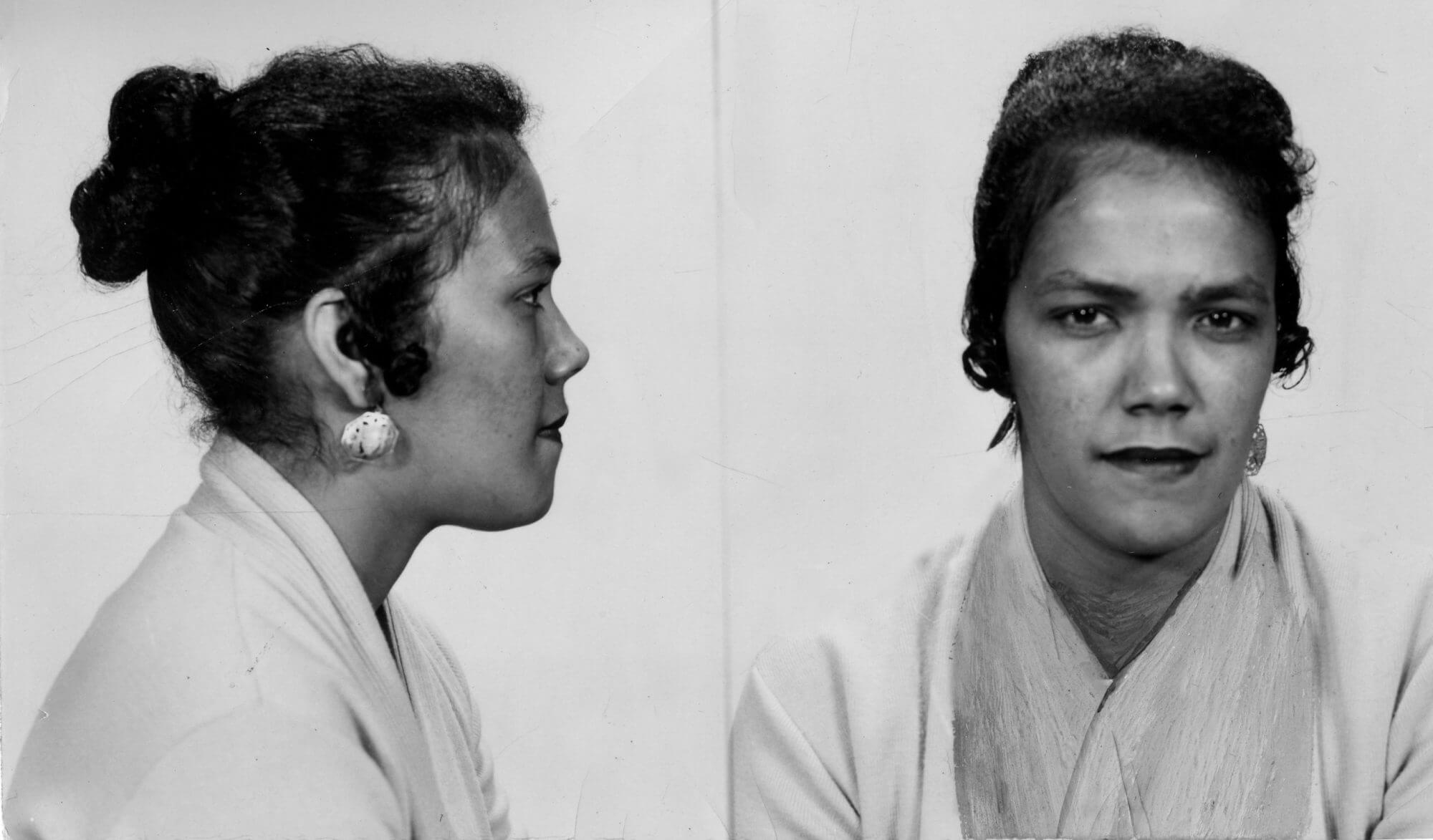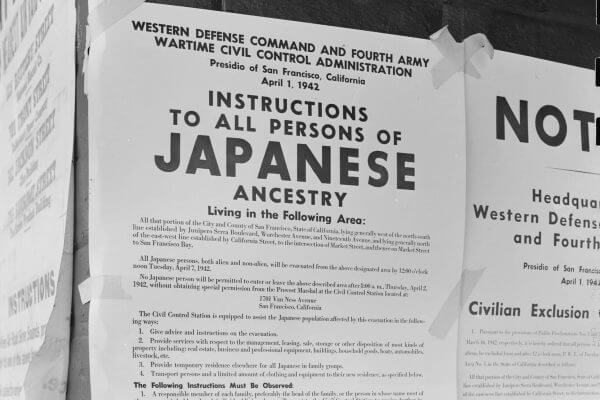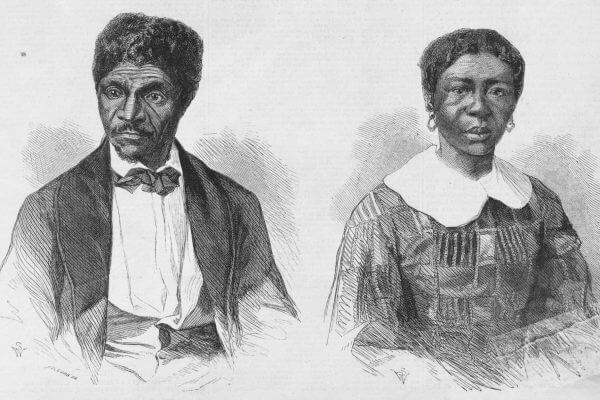
Mapp v. Ohio (1961)
Illegally Obtained Evidence is Inadmissible in State Courts
1957 mug shots of Dollree Mapp
Photo Credit: Photo by the Cleveland Press from the Cleveland Press Collections, courtesy of the Michael Schwartz Library Special Collections, Cleveland State University
Overview
Suspicious that Dollree Mapp might be hiding a person suspected in a bombing, the police demanded entrance to her home. Mapp refused to let them in because they did not have a warrant. The police later forced their way into her house. They were holding up a piece of paper, but when Mapp demanded to see their search warrant, they would not show it to her. As a result of their search, the police found a trunk containing pornographic materials. They arrested Mapp and charged her with violating an Ohio law against the possession of obscene materials. She was found guilty in court and sentenced to jail. After losing an appeal to the Ohio Supreme Court, Mapp took her case to the U.S. Supreme Court. The Court determined that evidence obtained through a search that violates the Fourth Amendment is inadmissible in state courts.

1957 mug shots of Dollree Mapp
Photo Credit: Photo by the Cleveland Press from the Cleveland Press Collections, courtesy of the Michael Schwartz Library Special Collections, Cleveland State University
". . . our holding that the exclusionary rule is an essential part of both the Fourth and Fourteenth Amendments is not only the logical dictate of prior cases, but it also makes very good sense. There is no war between the Constitution and common sense."
- Justice Thomas Clark, speaking for the majority
Learning About Mapp v. Ohio
Students
This section is for students. Use the links below to download classroom-ready .PDFs of case resources and activities.
About the Case
Full Case Summaries
A thorough summary of case facts, issues, relevant constitutional provisions/statutes/precedents, arguments for each side, decision, and case impact.
Case Background and Vocabulary
Important background information and related vocabulary terms.
Learning Activities
Teachers
Use the links below to access:
- student versions of the activities in .PDF and Word formats
- how to differentiate and adapt the materials
- how to scaffold the activities
- how to extend the activities
- technology suggestions
- answers to select activities
(Learn more about Street Law's commitment and approach to a quality curriculum.)
About the Case
- Full Case Summaries: A summary of case facts, issues, relevant constitutional provisions/statutes/precedents, arguments for each side, decision, and impact. Available at high school and middle school levels.
- Case Background: Background information at three reading levels.
- Case Vocabulary: Important related vocabulary terms at two reading levels.
- Diagram of How the Case Moved Through the Court System
- Case Summary Graphic Organizer
- Decision: A summary of the decision and key excerpts from the opinion(s)
Learning Activities
Teacher Resources
Planning Time and Activities
If you have ONE day...
- Read the background summary (•••, ••, •) and answer the questions.
- If you have not introduced the Fourth Amendment, Complete Fourth Amendment Analysis.
- Complete the Classifying Arguments Activity. Discuss which arguments the students find most convincing.
- For homework, have students read the Key Excerpts from the Majority Opinion, Key Excerpts from the Concurring Opinion, and Key Excerpts from the Dissenting Opinion to answer the questions. Follow up the next day by reviewing the questions with students.
If you have TWO days...
- Complete the activities for the first day (excluding homework).
- Complete Judicial Opinion Writing Activity.
- For homework, have students read the Key Excerpts from the Majority Opinion, Key Excerpts from the Concurring Opinion, and Key Excerpts from the Dissenting Opinion to answer the questions. Follow up the next day by reviewing the questions with students.
If you have THREE days...
Note to teachers: We recommend that you invite a community resources person, such as a police officer, judge, or lawyer, to assist in the activities described here for day three. Many of the scenarios are tricky and the answers can depend upon the nuances of state law.
- Complete the activities for the first and second days (including homework).
- Complete the activity titled "Search Warrants: What Are They and How Do They Work?"
- Next, complete the activity titled "When is a Search Warrant Not Needed?"
If you have FOUR days...
- Complete the activities for the first, second, and third days.
- On the fourth day, complete the Document Analysis: “Impeach Earl Warren” Postcard Activity.
- Complete the Inquiry-based Task: What’s Your Opinion? (Carpenter v. United States). For advanced classes, consider completing Senate Debate: Abolishing the Exclusionary Rule.
Glossary
These are terms you will encounter during your study of Mapp v. Ohio. View all Glossary terms here.
Related Cases
Legal Concepts
These are legal concepts seen in Mapp v. Ohio. Click a legal concept for an explanation and a list of other cases where it can be seen. View all Legal Concepts here.






